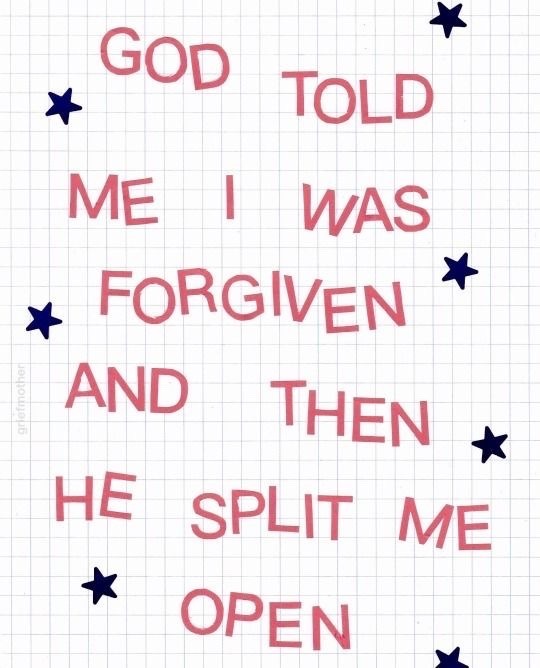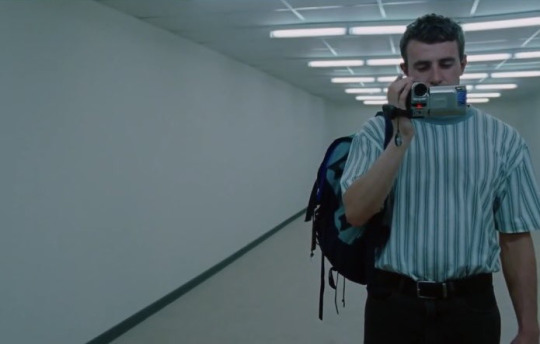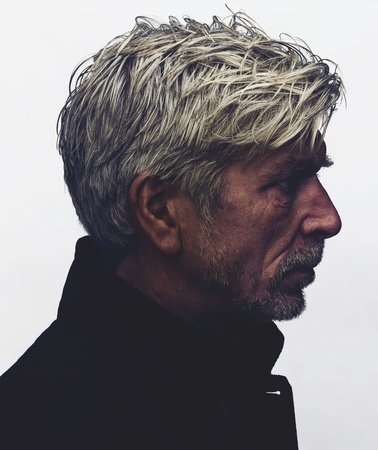#Karl Ove Knausgaard
Text





your god, my god – sean glatch // kanika lawton // katie maria // anne carson // karl ove knausgaard.
#poetry#quotes#web weaving#webweaving#.w#words#excerpts#on god#sean glatch#kanika lawton#katie maria#anne carson#karl ove knausgaard
991 notes
·
View notes
Text

“Love is every bit as violent and dangerous as murder.”
― Knut Hamsun
#knut hamsun#karl ove knausgaard#classics#classical literature#quotes#franz kafka#sylvia plath#classical quotes#poetry#booklover#book quotes#books#booklr#books & libraries#bookblr#reading#books and reading#bookstagram#biblophile#lit#literature#classic literature#literary quotes#dark acamedia#dark acadamia quotes#writers on tumblr#writers#writers of tumblr#writers and poets#writeblr
65 notes
·
View notes
Text



on the shame of being seen
hanya yanagihara a little life (via @moranjpg) \\ karl ove knausgaard (via @figtreeification) \\ cynthia cruz the glimmering room: "diagnosis" (via @virginiewoolf)
support this blog
#on shame#mine#my webweaving#webweaving#web weaving#webweave#web weave#web#webs#ww#karl ove knausgaard#parallel#parallels#parallelism#compilation#compilations#intertext#intertextuality#comparative#comparatives#cynthia cruz#the glimmering room#diagnosis
392 notes
·
View notes
Text





Boyhood Island, Karl Ove Knausgård
Aftersun, dir. Charlotte Wells
#also lorde supercut bc it’s evergreen#this fucking. movie#aftersun#karl ove knausgaard#charlotte wells
127 notes
·
View notes
Text
‘Listen up, pal, the moon is way up in the sky. Aren’t you scared? The helplessness that comes from nature. That moonlight, think about it, that moonlight paler than a corpse’s face, so silent and far away, that moonlight witnessed the cries of the first monsters to walk the earth, surveyed the peaceful waters after the deluges and the floods, illuminated centuries of nights and went out at dawns throughout centuries…Think about it, my friend, that moonlight will be the same tranquil ghost when the last traces of your great-grandsons’ grandsons no longer exist. Prostrate yourself before it. You’ve shown up for an instant and it is forever. Don’t you suffer, pal? I…I myself can’t stand it. It hits me right here, in the center of my heart, having to die one day and, thousands of centuries later, undistinguished in the humus, eyeless for all eternity. I, I!, for all eternity… and the indifferent, triumphant moon, its pale hands outstretched over new men, new things, different beings. And I Dead!“–I took a deep breath. 'Think about it, my friend. it’s shining over the cemetery right now. The cemetery, where all lie sleeping who once were and never more shall be. There, where the slightest whisper makes the living shudder in terror and where the tranquility of the stars muffles our cries and brings terror to our eyes. There, where there are neither tears nor thoughts to express the profound misery of coming to an end.’
— Clarice Lispector, “Another Couple of Drunks” (”Mais dois bêbedos”) from the Complete Stories
There’s almost a full moon now, shining faintly behind the clouds. I read the other day that we go back two hundred thousand generations. The moon has shone for them all. A short time ago I looked up a tit from where I was standing in the yard, and paused at the thought that Dante had stared at the same moon. Cave dwellers and peoples of the savannah, hunters and gatherers, farmers and forest people. The Egyptians, the Greeks, the Romans, the Amerindians. My forebears. Myself, through all my life, three, nine, eighteen, thirty-seven years old. Every night, the moon has been there. But what the thought conjured wouldn’t come. I felt no sense of history’s depths, no sense of being surrounded by our colossal past. If the moon is an eye, it is the eye of the dead. What it says to us is you are alone, you too. You can believe one thing, or you can believe another. It makes no difference, my children. Fight the fight, live life, die death.
— Karl Ove Knausgaard, “At the Bottom of the Universe” from In the Land of the Cyclops: Essays
#clarice lispector#lispector#karl ove knausgaard#knausgaard#literature#moon#nature#quote#death#life#history
32 notes
·
View notes
Text
Currently listening to the audiobook of:
“MY STRUGGLE” (book 1)
by KARL OVE KNAUSGAARD
…and my God!
It’s a free-form poetic/prose memoir.
And it’s blowing my mind.
I’ve never read anything with so much freedom and BALLS.
I recommend this book to anyone who loves writing for the sake of writing.
And there’s 6 of these motherfucking books!
I feel so inspired to write a long rambling novel about whatever the hell I want.

#karl ove knausgaard#poem#poetry#original poem#original poetry#spilled ink#typewriter#artists on tumblr#art#digital art#drawing#poets community#poets cafe#writers and poets#poetscommunity#new poets society#poets of tumblr#poetsandwriters#poets on tumblr#poets corner#spilled writing#writers on tumblr#prose writing#writing#poets and writers#writeblr#writerscommunity#writer things#poemsdaily#poemsociety
9 notes
·
View notes
Text
“The reason was simple: I loved her, and the force of that love allows nothing to stand in its way, neither the ugly, nor the unpleasant, nor the disgusting, nor the horrific.”
— Karl Ove Knausgaard, “Autumn” (183)
6 notes
·
View notes
Text
Von Schnee, Zügen und Stiefeletten
„Das Leben soll doch heiter, das Leben soll doch leicht, das Leben soll doch wie die Kinder sein, die lachend am Ufersaum über den Strand laufen, die am ersten Schultag lächelnd in eine Kamera blicken, zum Bersten voll von Erwartungen und gespannter Vorfreude.“
Philosophisch, poetisch, berührend – So lässt sich Im Winter (2015 bei Luchterhand), der zweite Band der Jahreszeitenreihe von Karl Ove Knausgård am besten zusammenfassen. In kurzen Betrachtungen, die selten länger sind als drei bis vier Seiten, beschreibt er die unendliche Vielfalt des Lebens und das Glück der kleinen Dinge. Dieses Mal reicht seine Sammlung des Alltäglichen von Rohren über Mützen bis hin zu Schneewehen.
Bekannt sein dürfte Knausgård den meisten wohl durch seine sechsteilige Autobiographie, in der er durch eine besondere Beobachtungsgabe nicht nur gegenüber sich selbst sondern auch gegenüber seiner Umwelt und der Natur überzeugt. In seiner inzwischen abgeschlossenen vierteiligen Jahreszeitenreihe zieht er seine Leser mit seinen feinfühligen, klugen Beobachtungen erneut in seinen Bann. In kurzen Essays, Betrachtungen und Briefen, die er seiner ungeborenen Tochter widmet, beschreibt er das Leben im Winter. Das Bezaubernde hieran: Er nimmt dabei selbst den Blick eines staunenden Kindes ein und lädt den Leser damit ein, die Welt ein zweites Mal zu entdecken.
Die Worte, die Knausgård wählt, sind ebenso wie die betrachteten Gegenstände unscheinbar und leicht, doch ihm gelingt es, mit einer unglaublichen Wortgewandtheit und Poesie, jeden seiner Sätze zum Leuchten zu bringen. Sie malen Bilder im Kopf des Lesers, die Anstoß sind für ein eigenes Erinnern. Liest man die Kapitel zu Kuscheltieren und Weihnachtsgeschenken, fühlt man sich regelrecht zurückversetzt in seine eigene Kindheit.
Optisch ergänzt werden Knausgårds scharfsinnige Texte durch Bilder des schwedischen Malers und Sachbuchautors Lars Lerin. Sie fangen die Stimmung, die Knausgård mit Worten malt, auch optisch ein, so dass das Buch zu einem echten Hingucker wird.
Im Winter – Ein liebevoll gestaltetes Buch, das zum Verweilen einlädt und die graue Wintermonate ein wenig heller macht.
2 notes
·
View notes
Text
"One could say that all photography is about loss. But one could also say the opposite: photographs salvage something from time, as from a burning house."
- Karl Ove Knausgaard
19 notes
·
View notes
Text
"What makes life worth living? No child asks itself that question. To children life is self-evident. Life goes without saying: whether it is good or bad makes no difference. This is because children don't see the world, don't observe the world, don't contemplate the world, but are so deeply immersed in the world that they don't distinguish between it and their own selves."
- Karl Ove Knausgard, Autumn
4 notes
·
View notes
Text
Flaubert's sentences are like a rag rubbed across a windowpane encrusted with smoke and dirt which you have long since grown accustomed to seeing the world through.
Karl Ove Knausgaard
11 notes
·
View notes
Text
Don't use that foreign word 'ideals' when we have our own perfect Norwegian word: 'lies'.
Read Ibsens The Wild Duck. Here is my favorite quote which I translated from Norwegian. I hope my translation conveys the genius of the line. Here is the original Norwegian: "brug ikke det udenlandske ord: idealer. Vi har jo det gode norske ord: løgne."
#henrik ibsen#plays#shakespeare#anton chekhov#classical literature#classics#quotes#booklover#book quotes#books#booklr#books & libraries#reading#bookblr#books and reading#words#theatre#karl ove knausgaard#lit#literature#classic literature#literary quotes#biblophile#classic academia#classical quotes#poetry#classical poetry#poem#writers of tumblr#writers on tumblr
24 notes
·
View notes
Text
I loved being here.
At home in our flat everything was us, there was no distance; if I was troubled, the flat was also troubled. But here there was distance, here the surroundings had nothing to do with me and mine, and they could shield me from whatever was troublesome.
—Karl Ove Knausgaard, My Struggle (Book 1)
6 notes
·
View notes
Text
"Jeg hadde alltid savnet diskusjonene vi hadde, åpenheten mot verden og livet. Den var kanskje naiv, men det var også genuin. Den gangen trodde jeg at det var slik at livet ville bli. Vi ødslet med tiden og med tankene, og først da det var over, forstod jeg at det hadde vært unikt og aldri ville komme tilbake. Det er slik livet er, er det ikke -- som unge tror vi at det kommer mer, at dette bare er begynnelsen på noe, mens det i virkeligheten er alt, og at det vi uten å tenke på det har, snart blir det eneste vi hadde. [...] at livet var mer absolutt, betydde ikke bare at det var sannere, men også at det ikke var noen veier bort fra det. Ingenting stod lenger åpent, som det hadde gjort da vi var i begynnelsen av tjueårene."
"I had always missed the discussions we had, the openness towards the world and life. Maybe it was naive, but it was also genuine. Back then, I believed that this was how life would be. We squandered our time and our thoughts, and only when it was over did I understand that what we had was unique, and would never come back. This is how life is, isn't it -- as young people we believe that more is coming, that this is just the beginning of something, while in reality this is everything, and that thing which we had without appreciating soon becomes the only we ever had. [...] that life was more absolute meant not only that it was truer, but also that there were no ways away from it. Nothing remained open anymore, like it had been when we were in the beginning of our twenties."
-Karl Ove Knausgård, Morgenstjernen/The Morning Star
13 notes
·
View notes
Text
Sigaranın izmaritini yere attım ve çoktan soğumuş kahvemin son yudumunu içtim.
Hayata bakıyor, ölümü düşünüyordum.
4 notes
·
View notes
Text
La estrella de la mañana, de Karl Ove Knausgård
¿Es posible escribir ficción después de una saga espectacular de autoficción como Mi lucha?

Ciertamente es posible, y más aún después del Cuarteto de las estaciones -En otoño, En invierno, En primavera y En verano- bañada por el proceso creativo de la explicación del universo más cotidiano hasta el más complejo.
No hay duda de que para Knausgård la escritura se le hace fácil en el sentido automático: poder escribir de lo que está escribiendo ennegreciendo página tras página sin seguir un rumbo puede ser un ejercicio delicioso pero a la vez frustante.
La estrella de la mañana (Anagrama, 2023), su novela más reciente, es un logro para desprenderse del éxito pasado -su vida encarnada en literatura- y revalorarse como Escritor. También, de alguna manera, para liberar a sus lectores de la fantástica opresión que significó Mi lucha y encausarlos de nuevos proyectos.

En La estrella de la mañana el escritor noruego pone a prueba el misterio, los temores, las creencias, en una serie de personajes que se verán tocados por la aparición repentina de un astro. La luminocidad de dicha “estrella” agita el panorama mundial desde las redes sociales hasta la vida privada.
La sensación de este fenómeno me llevó a dos películas, una más reciente que la otra: Melancolía, de Lars Von Trier, y No mires arriba, de Adam McKay. Desde luego mucho más a la película de Von Trier. Y esto porque no existe una horeocidad para salvar al planeta ante tal catástrofe, solo el devenir de lo insólito, de lo inevitable.
Knausgård no plantea soluciones a sus personajes, sino más bien una polifonía que logra cerrar vasos comunicantes a lo largo de las casi 800 páginas.
El mundo se pone en contacto con nosotros. Son señales del mundo. De lo que hay.
Dice uno de los personajes, luego de dar cuenta de algunos hechos similares ocurridos hace cientos de años.
Entonces la vida continúa como tal, respondiendo, sobre todo interpretando cada significado posible de la estrella de la mañana en la mitología, en las religiones, en la propia Biblia, en medio de las infaltables contingencias desgastantes, desoladoras, de cada individuo.
Luego de veinticuatro capítulos la novela de Knausgård concluye con un estupendo ensayo de Egil Stray: Sobre la muerte y los muertos, que es su propia vida y libertad, un juego de ideas personales y prestados de Bataille, Nietzsche, Eliade.
Los sueños pertenecen a lo irracional, y decir que son ellos los que nos permiten acceder a la realidad tal como es, obviamente no puede ser aceptado por lo racional. Pero, curiosamente, también en el lado racional los límites del tiempo se han desgastado: cuanto más ha penetrado la ciencia en sus misterios, menos obvia va siendo la separación

#literatura#libros recomendados#noticias#karl ove knausgaard#reseña de libros#bookblr#escritores#libros
4 notes
·
View notes